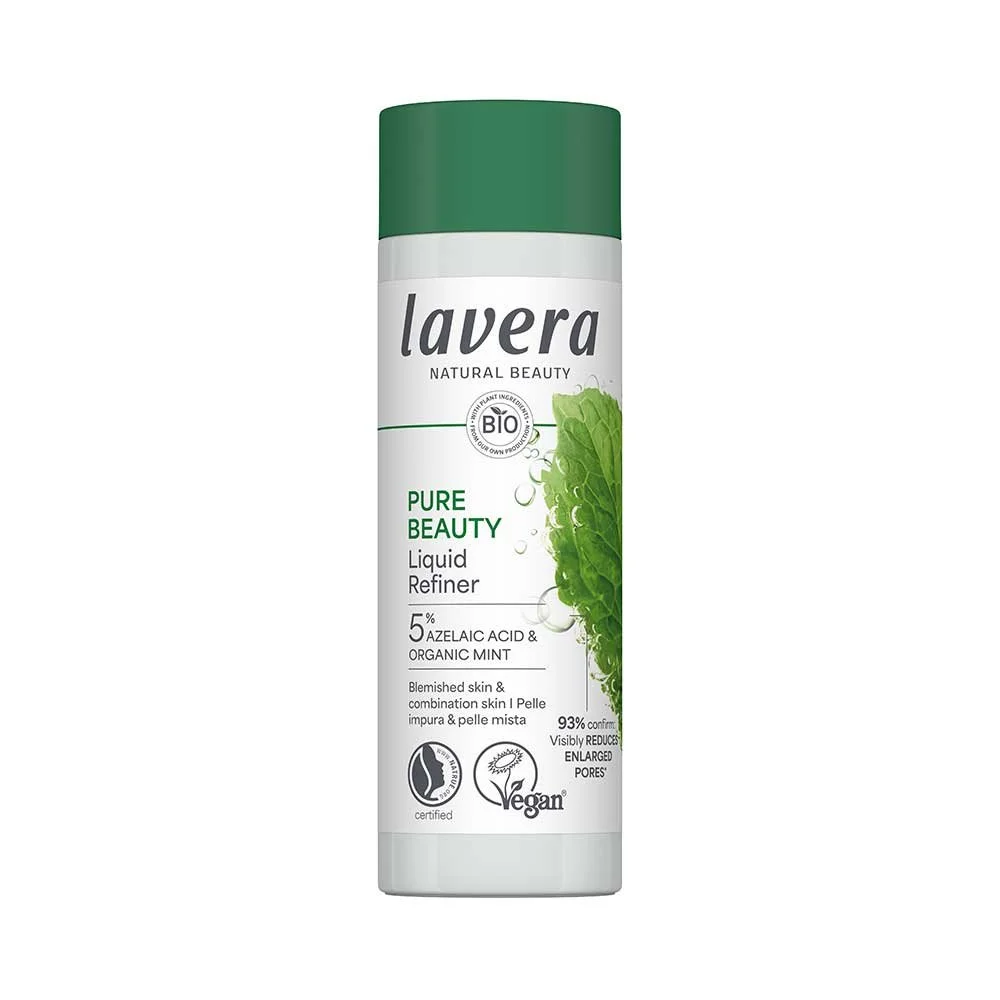
Azelaic Acid- Power Acid With Peeling Effect
Whether it’s azelaic creams or azelaic serum- the ingredient azelaic acid has long since taken a firm place in the beauty world. Read on to discover why this active ingredient helps so well with blemishes and redness, and how it can ensure a refined complexion.
INCI designation: Azelaic Acid
Natural occurance: Wheat, rye and barley
Special talent: Skin texture refining effect, reduces skin redness
What is azelaic acid good for?
Azelaic acid is a so-called dicarboxylic acid of natural origin, which is obtained from various cereals or sunflower seeds. Dicarboxylic acids are chemical compounds that occur mainly in nature. Just like salicylic acid and PHA, azelaic acid is one of the power acids in lavera facial care. It works like a leave-on scrub on your skin.
Refined Skin Texture Thanks To Azelaic Acid
Azelaic acid helps prevent blackheads and slows the growth of acne-causing bacteria. It also deeply cleanses the pores, contributing to clearer skin. Research shows that azelaic acid can significantly reduce inflammation and soothe the skin, leading to visibly smaller and less noticeable pores. Additionally, it helps fade acne scars and redness, making them appear lighter. By regulating melanin production, azelaic acid also reduces hyperpigmentation and dark spots for a more even skin tone.
But that’s not all—azelaic acid also provides a gentle exfoliating effect. It helps remove dead skin cells and supports natural skin renewal, resulting in a smoother, more even complexion.
Incorporating azelaic acid into your skincare routine is simple. Start by using a product containing this ingredient once a week, then gradually increase usage to up to four times per week, depending on your skin’s tolerance. Pay attention to how your skin responds and adjust accordingly.
Azelaic acid in our products



